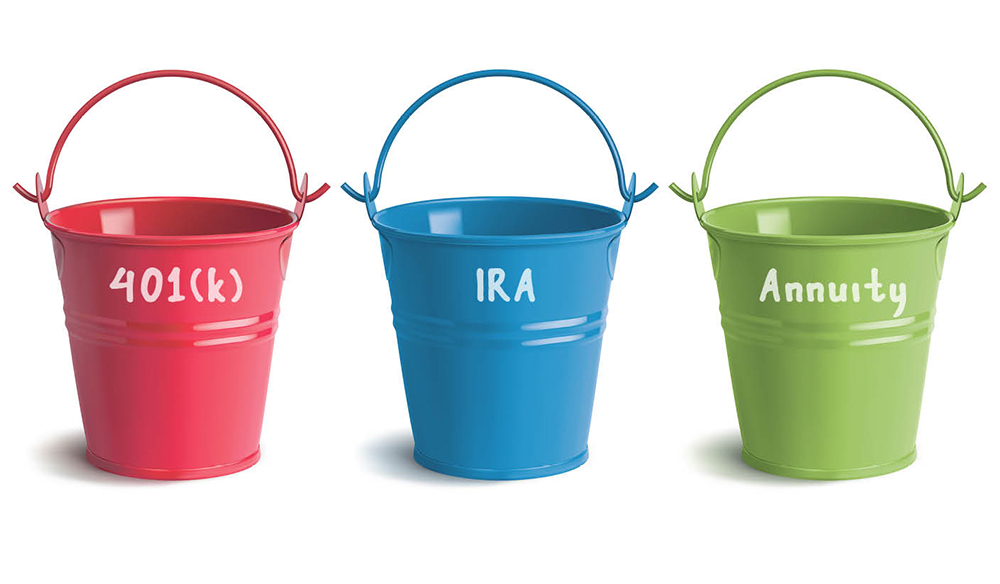SUBSCRIBE
Enter your Name and Email address to get
the newsletter delivered to your inbox.
Please include name of person that directed you to my online newsletter so I can thank them personally.

Tom Meaglia, ChFC®, AEP®,
CLU®, CRPC®, MSFS
Chartered Financial Consultant
Investment Advisor Representative
Chartered Retirement Planning Counselor
CA Insurance Lic. #0567507
Meaglia Financial Consulting
2105 Foothill Blvd., #B140, La Verne, CA 91750
Toll Free: 800-386-3700
Bus: 909-593-6105
Cell: 818-681-8600
Fax: 909-593-6120
Email: tom@meagliafinancialconsulting.com
Website: www.meagliafinancialconsulting.com

Super retirement savers often contribute the maximum allowed to tax-qualified retirement accounts like 401(k) plans and IRAs. If you’re a super saver, what do you do if you want to contribute more to a tax- deferred account?
Depending on your situation, one vehicle that may make sense is an annuity.* Purchasing an annuity can help you put additional tax-advantaged dollars away for retirement and avoid the annual taxes that investing in taxable investments may bring.
People who contribute the maximum allowed to their qualified retirement accounts may have to take high, mandated required minimum distributions (RMDs). This can be a taxing problem because high RMDs may bump taxpayers into a higher tax bracket. This is exacerbated if they also receive income elsewhere. And the higher the retirement income, the more Medicare Part B will cost. For example, in 2023 monthly premiums ranged from $164.90 to $560.50, depending on income. Anyone who turns age 73 in 2023 must start RMDs no later than April 2024.
If you are risk-averse, an annuity can provide relative safety. Fixed annuities may not be the best choice if you think you may need to begin annuity payments during the first six to 10 years, when significant surrender charges occur. If you want income now, consider an immediate annuity.
Rules for qualified and nonqualified annuities may differ. Your financial and tax professionals can tell you more about how an annuity might benefit you and affect your taxes in retirement.
*Annuity products are not FDIC-insured, and their guarantees are backed solely by the claims-paying ability of their issuing life insurance company. Distributions from traditional annuities are taxed as ordinary income and, if taken prior to reaching age 59½, may be subject to an additional 10% IRS tax penalty.
Enter your Name and Email address to get
the newsletter delivered to your inbox.
Please include name of person that directed you to my online newsletter so I can thank them personally.
Enter your Name, Email Address and a short message. We'll respond to you as soon as possible.
Thomas Meaglia is an Investment Adviser Representative of Coppell Advisory Solutions LLC, dba, Fusion Capital Management, a registered investment adviser that only conducts business in jurisdictions where it is properly registered, or is excluded or exempted from registration requirements. Registration as an investment adviser is not an endorsement of the firm by securities regulators and does not mean the adviser has achieved a specific level of skill or ability. The firm is not engaged in the practice of law or accounting.
Insurance and annuity products are not sold through Fusion Capital Management. Fusion does not endorse any annuity or insurance product, nor does it guarantee any insurance or annuity performance. Annuity and life insurance guarantees are subject to the claims-paying ability of the issuing insurance company. If you withdraw money from or surrender your contract within a certain time after investing, the insurance company may assess a surrender charge. Withdrawals may be subject to tax penalties and income taxes. Persons selling annuities and other insurance products receive compensation for these transactions. These commissions are separate and distinct from Fusion's investment advisory fees.
Meaglia Financial Consulting and LTM Marketing Solutions, LLC are unrelated companies. This publication was prepared for the publication’s provider by LTM Marketing Solutions, LLC, an unrelated third party. Articles are not written or produced by the named representative.
The information and opinions contained in this web site are obtained from sources believed to be reliable, but their accuracy cannot be guaranteed. The publishers assume no responsibility for errors and omissions or for any damages resulting from the use of the published information. This web site is published with the understanding that it does not render legal, accounting, financial, or other professional advice. Whole or partial reproduction of this web site is forbidden without the written permission of the publisher.